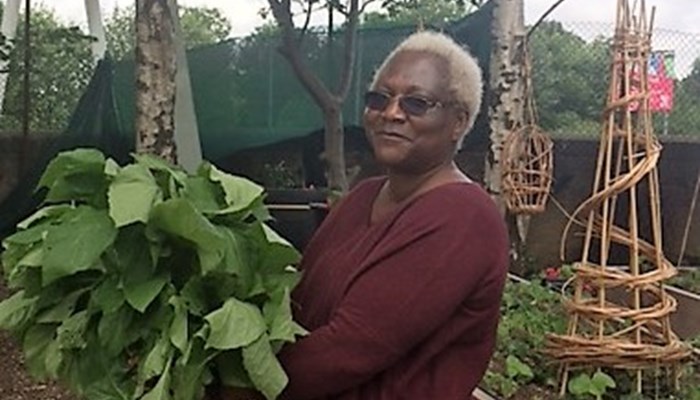What is your organisation working to achieve?
For our service users - Saheliya’s wrap-around, trauma-informed, and women-centred services in first languages create individually targeted pathways to sustainable well-being, autonomy, active citizenship, and financial independence.
For our organisation – sustainability through a broad funding base of grant funders, individual donations including Gift Aid, and self-generated income.
For wider society and Scotland – an inclusive, just, and equal Scotland with services that can respond to the needs of the most vulnerable, with women from all backgrounds represented in political structures and all work-places.
Where are you focusing your support right now?
We always need to focus on those most at risk – whether that is the women themselves, or their children, or both. Most women come to us in crisis so we are trying to ensure that we can provide services in all relevant first languages.
We are also focussing additional resources on parenting support – including our parenting for well-being and safety so that women who find it difficult to parent because they are traumatised are able to build positive relationships and achieve sustainable well-being for themselves and their children. Service users’ children score very highly on ACES and often have behavioural problems and problems achieving developmental milestones.
How do poverty and trauma figure in your work?
Everything we do, including our learning and move on activities are trauma informed. Without trauma awareness alongside cultural knowledge and support in first languages, women cannot progress to well-being, active citizenship, or independence. Our case workers are qualified in therapeutic support, we provide one-to-one therapeutic support (talking therapies and complementary therapies) and mental health group work, as well as mental health first aid groups to build women’s skills to look after their own mental well-being. These stepping stones form the building blocks of their new lives.
We have been part of the Scottish Government / NES consultation on trauma to develop training programmes so that all public sector agencies and staff are trauma aware. However, the level of trauma our service users experience are akin to those of torture survivors and there is little mainstream awareness of the extent of their problems. We hope that the progression towards the right under Scots Law to rehabilitation of torture survivors will ensure the mainstream becomes aware of the extent of the problems people face and the repercussions on all aspects of their lives.
We are heartened that there is progress being made to ensure there is access to justice in Scotland for people in the asylum and immigration process – this will ease the re-traumatisation by reducing the frequency of women getting stuck in the system or not having access to appropriate legal representation.
Poverty is a key issue for our service user group. A considerable proportion (approx. 25%) of our 1,100+ service users each year are destitute or at immediate risk of destitution when they come to us. Others are in low paid and zero hours contract jobs, have little job security, and few savings. Most are dependent on benefits or on husbands who are low-waged and in insecure employment. There are more people dependent on less money than in the mainstream. Most are in inadequate housing and / or at risk of homelessness.
Many women don’t have bank accounts. Recent emergency grants from BEMIS were not accessible for many of our service users because of this; we needed to negotiate to get vouchers instead of emergency grants.
Barriers to learning and achieving aspirations include trauma, lack of trauma-aware and women-only learning opportunities, low level English language, literacy, and IT skills, lack of affordable childcare, heavy burden of caring responsibilities and domestic chores.

How can funders support your work?
Provide funding with realistic full-cost recovery and for three to five years. Focus funding on organisations that make the biggest impact and who can demonstrate quality of service delivery, employment, and ethos.
What changes would you like to see in your area of focus during the next five years?
- More move-on opportunities like our Champions for Well-being and Champions for Change programmes in more first languages – they really change women’s lives and their children’s lives, sustainably.
- More social enterprise development so that we can employ more ex-service users (we currently have childcare progression paths specifically for our service users, and to a lesser degree for our sewing social enterprise, it would be good to extend this into other areas – a café, a shop front, etc).
- Parenting for mothers and carers of teenagers is much in demand.
- More support for women to use the systems that exist to support them – e.g. reporting racist and Islamaphobic harassment.
What long-term system changes would best address the issues?
- A different approach to interpreting so that women and men can access services when required.
- Communication on rights and responsibilities at point of entry.
- Recognition and health service funding for voluntary sector organisations providing high quality and wrap-around support for people with complex trauma. Further devolution so that the Scottish Government has more say in asylum and immigration.
- Resourcing for the excellent policy developments such as trauma aware public services, access to justice for all, right to rehabilitation under Scots Law for torture survivors.
- All of the above being built into education and into the education of educators.
How Saheliya's work fits with our 2020-2030 strategy
"Throughout this strategic period, we are working to grow our understanding of how and why certain groups are at a greater risk of poverty, trauma or both. Research has shown that these groups include women, people from a BAME background and asylum seekers and refugees.
"We have been long-term supporters of Saheliya’s work and recognise that their experience of working with these groups across Edinburgh and Glasgow makes them an authoritative and highly-respected voice on the issues affecting them. They have a strong reputation supporting healthy integration and enabling the women they work with to progress, including routes to citizenship and employment."
Stewart Macgregor, Funding Manager

